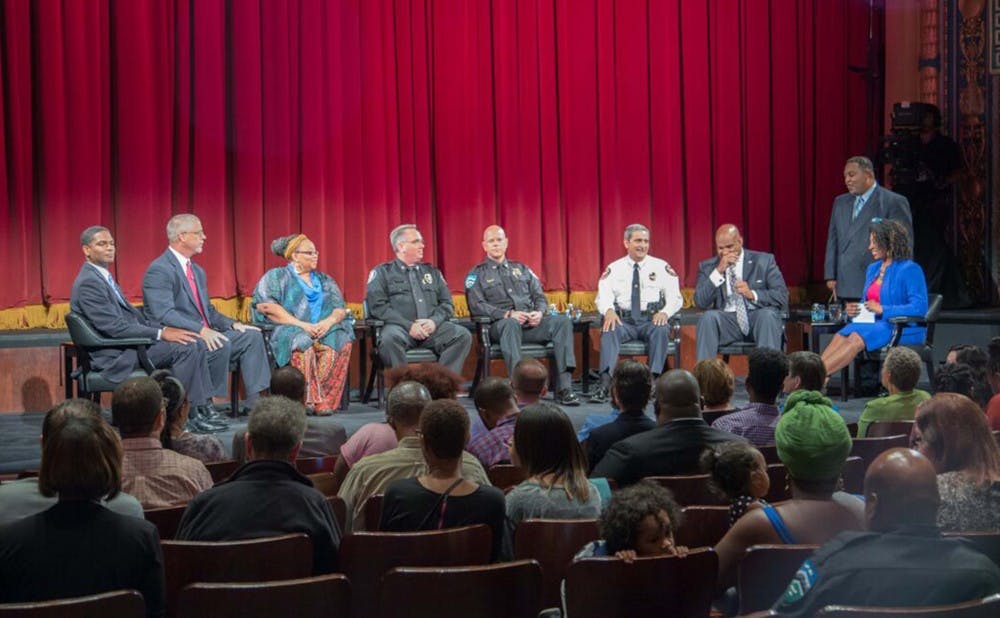Body cameras, racial profiling and the uneasy relationship between underprivileged communities and the police were discussed in a panel organized by University of North Carolina Television Monday night.
Though not the direct focus of the panel, underlying the discussions were a number of recent events in Durham and North Carolina—including the mistrial of the officer accused of shooting unarmed Jonathan Ferrell in Charlotte and the acquittal of Carlos Riley Jr., who was found not guilty of assaulting a police officer in Durham. The panel, which consisted of community leaders, politicians and members of law enforcement, fielded questions about police methodologies and the tense dynamic between police and the community.
“We’re at a turning point, and we need to engage a lot more,” said Durham Police Chief Jose Lopez. “We need to look to tomorrow and find solutions.”
The use of body cameras and anti-bias training were two of the specific initiatives discussed by panel members. Greensboro Police Chief Wayne Scott noted that the Greensboro Police Department has been using cameras for two years and films all initial police contact, but that leaving police cameras on all the time would be impossible due to limits on data storage.
Nia Wilson—executive director of the Durham cultural arts organization Spirit House, which works with underprivileged families to increase civic engagement—said police officers should not require body cameras to be deterred from using violence.
Steven Combs, director of the Criminal Justice Standards Division of the North Carolina Department of Justice, discussed the importance of anti-bias training in reducing the likelihood and necessity of the use of violence by police. But although Combs said anti-bias training was just one part of the education police officers undergo, Wilson pointed out that a few hours of anti-bias training cannot undo years of natural bias formation.
State Representative Edward Hanes Jr. of Forsyth County explained that legislation requiring bias training and the use of body cameras among North Carolina officers was moving through the General Assembly.
Other members of the panel spoke of building trust between law enforcement officials and members of the community—notably, Hanes suggested that police officers ought to live in the communities they serve, as many do not. Neighborhoods with a high police presence are also subject to fear and mistrust, he said.
“We have to build relationships before the crisis comes,” said Christopher Blue, Chapel Hill police chief.
Travis Mitchell, president of Communities In Schools of Wake County, discussed his role as an educator who helps teach young men how to safely interact with police officers. He drew on a recent experience where he, a 45 year-old African-American man with graying hair and wearing a suit, was stopped by police and had his car searched. Though he was able to keep his cool, younger men are more likely to lose their temper around the police, Mitchell said.
“I’ve got no choice but to tell them about the rules of engagement to survive,” he said. “All life matters, period, and the sanctity of life must be protected.”
The panel ended after several members of the audience asked how change can happen if members of the community are not invited to events where decisions are made.
Wilson explained that she offered her spot on the panel to the members of the community she works with, but no one wanted it.
“It doesn’t help when those who feel safe are the ones invited to this event,” Wilson said. “I’m sitting here because [those who feel unsafe] gave me permission to be in this seat.”
The event, hosted by UNC-TV’s Deborah Holt Noel and Mitchell Lewis, was held at the Carolina Theatre and will be broadcasted by UNC-TV Sept. 9.
Get The Chronicle straight to your inbox
Signup for our weekly newsletter. Cancel at any time.

